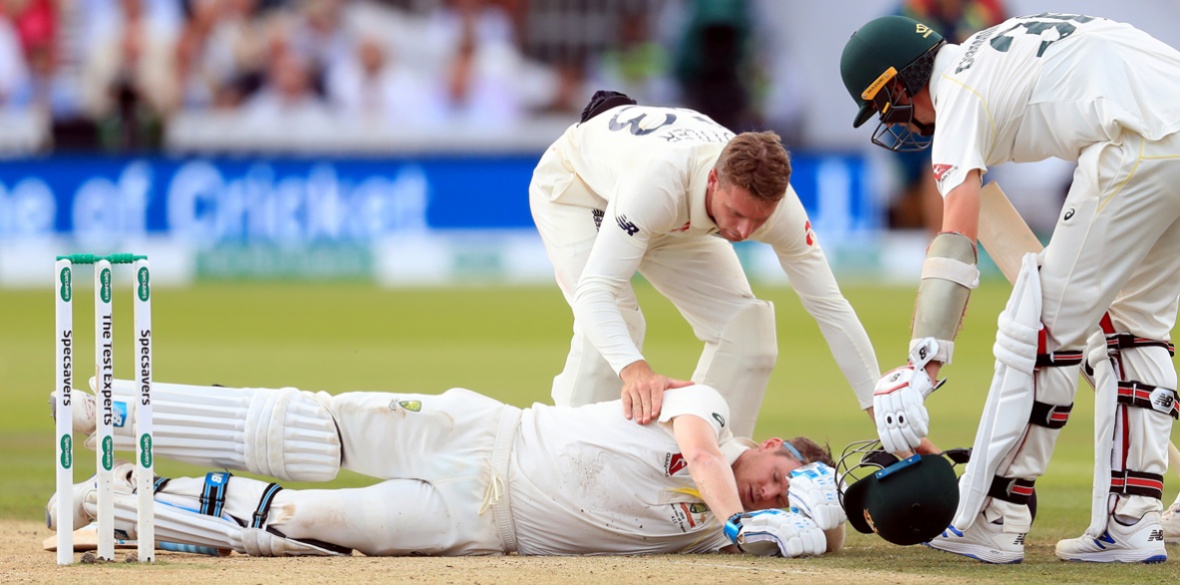This is the last article you can read this month
You can read more article this month
You can read more articles this month
Sorry your limit is up for this month
Reset on:
Please help support the Morning Star by subscribing here
BRAIN injury charity Headway believes cricket may need to look again at its concussion protocols after Steve Smith put himself in an “incredibly dangerous” position at Lord’s.
Smith had retired hurt after taking a 92mph bouncer from Jofra Archer in the neck during the second Ashes Test but was allowed to resume his innings less than an hour later having passed concussion testing.
That exposed him to the possibility of further blows to the head and he was diagnosed with a delayed concussion the following morning, ruling him out for the remainder of the match.
Headway’s deputy chief executive Luke Griggs said: “Cricket has been caught on the back foot a little bit with concussion. We thought it was an American football, rugby or football issue, but we are slowly beginning to realise that it affects all sports.
“The reaction time of a batsman facing a 90mph-plus delivery is incredibly small and yet it is absolutely vital they are fully concentrated.
“With concussion the vision can be blurred and the brain can be slow at processing information. That leads to delayed reaction times and is just incredibly dangerous.”
It remains to be seen whether Smith will play in the the third Test at Headingley, which begins on Thursday.
The player has indicated he would like to, if passed fit, while captain Tim Paine said: “It would be tough to stop Smithy walking out.”
Headway believes more may need to be done to keep competitors safe, though, with a greater emphasis on caution after being hit.
“What this incident highlights is that no test for concussion is foolproof,” the organisation said.
“The signs can be delayed for several hours and sometimes even a couple of days. You cannot take any risks with concussion, which is why we have always said that all sports have to take an ‘if in doubt, sit it out’ approach.
“If there is even an hint of concussion when someone is bowling at 90mph, there is absolutely no way a player should be on the pitch. Cricket may need to consider this, while making it abundantly clear that players should have absolutely no say in the decision.”
Cricket Australia has led the way on concussion since Phil Hughes died from the impact of a bouncer five years ago in a Sheffield Shield match, while Smith was allowed to be substituted — Marnus Labuschagne taking his place — owing to new rules brought in by the International Cricket Council this month.
CA’s sports medicine manager Alex Kountouris insisted the organisation was happy with the way they dealt with the issue.
“If we pulled every player out who had a head impact we’d be pulling out 80 per cent of players who don’t have concussion so that would be an overreaction,” he told Australian reporters.
“He didn’t have concussion at the time so he was allowed to play. It’s pretty clear for us. We’ve got a doctor there. He is an expert in this field and trained to pick up even the minor signs of concussion.
“The reality is at the time he didn’t have a concussion.”










